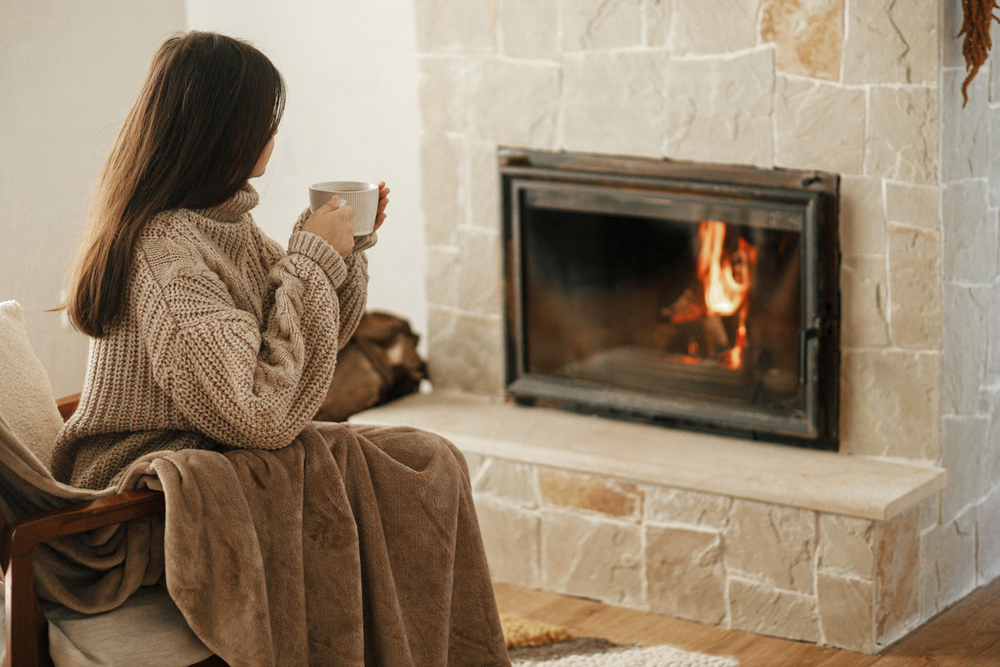
Preparing Your Home for Colder Weather: A Practical Guide for Homeowners
October 20, 2025
As temperatures begin to drop across the state, it's time to get your home ready for the colder months ahead. Even though we may experience milder winters than other parts of the country, freezing temperatures, power outages, or storm damage can still happen in Alabama — and cause expensive problems if you aren’t properly prepared!
Here are some tips to get your home winter ready and avoid unexpected headaches this season.
Seal Drafts and Improve Insulation
Even in milder climates, drafts can still lead to heat loss and, ultimately, higher energy bills. Check for gaps around windows and doors and use weatherstripping or caulk to seal them, if needed. Installing door sweeps can also help block drafts and adding thermal or heavy fabric curtains can help keep living spaces and bedrooms warmer.
Service Your Heating System
Before you need it daily, be sure to schedule a full maintenance check for your HVAC system. Replace air filters to keep everything running efficiently, and consider having your ducts cleaned, especially if it’s been a few years.
Protect Your Pipes
While deep freezes are rare in most parts of the state, cold fronts can still lead to burst pipes, especially in older homes or those with exposed plumbing. Insulate pipes in unheated areas, disconnect and drain outdoor hoses, and cover outdoor spigots with foam protectors. Also, make sure to locate your water shutoff valve in case of a pipe burst.
Check Your Roof and Gutters
Heavy rains and occasional ice can cause damage if your roof and gutters aren’t in top shape. Take some time now to inspect your roof for missing or damaged shingles and repair them as needed. Clean gutters and downspouts to prevent clogs and ice dams and make sure that water is properly draining away from your foundation.
Practice Fireplace Safety
If you’re looking forward to cozy nights by the fire, it’s important to make sure your fireplace is safe and ready to use. For wood-burning fireplaces, schedule a professional chimney inspection and cleaning, check that the flue opens and closes smoothly, and stock up on seasoned firewood. If you have a gas fireplace, a professional inspection is still recommended to ensure it is operating safely and effectively.
Test Smoke and Carbon Monoxide Detectors
With the increased use of heating systems and fireplaces during the winter, the risk of fire and carbon monoxide exposure rises significantly. Take some time now to test all detectors throughout your home and replace batteries, if needed. The National Fire Protection Association (NFPA) suggests installing smoke alarms in every sleeping room, outside each separate sleeping area, and on every level of the home. If you haven’t already, it’s also a good time to get your family together to develop an escape plan in case of a fire.
As far as carbon monoxide is concerned, the US Environmental Protection Agency (EPA) recommends that detectors be placed on each level of the home and at least 15 feet away from any fuel-burning appliance. It’s also a good idea to know the symptoms of carbon monoxide poisoning, which include flu-like symptoms without fever, dizziness, headache, nausea, weakness, shortness of breath, and confusion.
Stock Emergency Supplies
Extreme weather and power outages can happen anytime during the winter months, so now is a good time to take inventory of your emergency stash. Things like flashlights, extra batteries, warm blankets, nonperishable food, bottled water, and a well-stocked first-aid kit are must-haves. It’s also smart to keep a portable phone charger, a manual can opener, and any necessary medications easily accessible.
Prepare Landscaping and Outdoor Equipment
Even in areas with milder winters, it’s important to get your yard and outdoor tools ready for colder weather. Cover sensitive plants or bring them indoors when a freeze is in the forecast and take time to winterize lawn equipment like mowers and trimmers before storing them. It’s also a good idea to trim any overhanging tree limbs that could break during a storm and cause damage to your home or property.
Remember, while Alabama winters may not bring the threat of constant ice and snow, they can still throw a few curveballs. With a little preparation now, you can protect your home and keep your family safe and comfortable throughout the colder months.